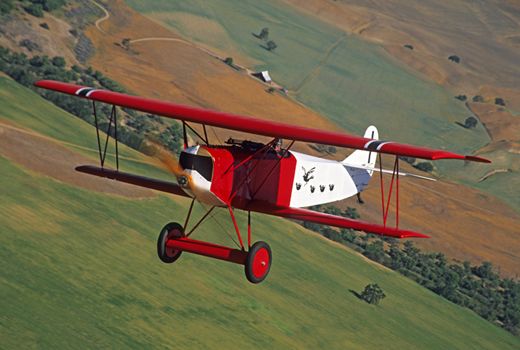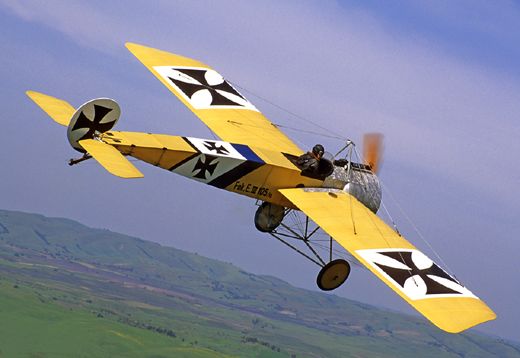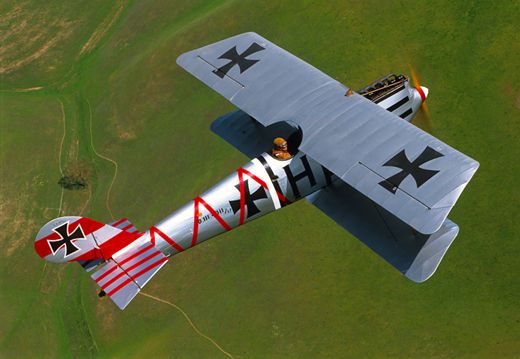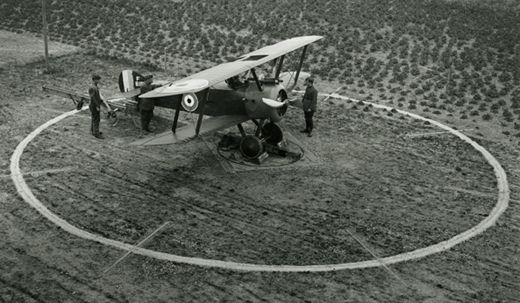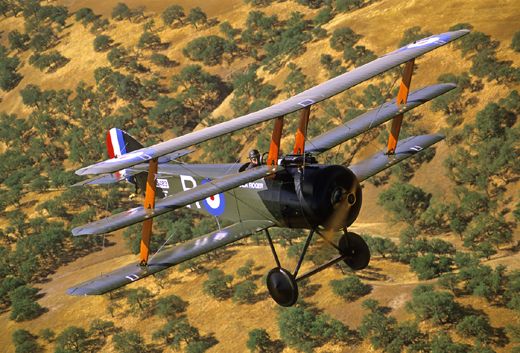Cecil Lewis’ War
One writer’s view of flying in WWI.
/https://tf-cmsv2-smithsonianmag-media.s3.amazonaws.com/filer/cecil-388-nov06.jpg)
Cecil A. Lewis (1898-1997) flew in the Royal Flying Corps between 1915 and 1918. After lying about his age to become a combat pilot, he qualified as an ace by downing eight aircraft during May and June of 1917. Lewis spent four months over the battlefield at the Somme, during which he won the Military Cross. He also served as a test pilot.
Lewis went on after the war to write numerous aviation-related books, including Sagittarius Rising, and to win an Academy Award for co-writing the screenplay for George Bernard Shaw’s Pygmalion. He served again in the Royal Air Force during World War II.
Philip Makanna, whose photographs of World War I airplanes are highlighted in this issue, used excerpts from Lewis’ writings (reprinted below) to accompany images in his book, Ghosts of the Great War: Aviation in World War I.
It was a dream, conjecturable as heaven, resembling no life we knew. We were trained with one object—to kill. We had only one hope—to live. When it was over we had to start again. I do not complain of this. It was a fine introduction to life.
The air was our element, the sky our battlefield. The majesty of the heavens, while it dwarfed us, gave us, I think, a spirit unknown to sturdier men who fought on earth. Nobility surrounded us. We moved like spirits in an airy loom, where wind and cloud and light wove day and night long the endless fabric of the changing sky.
From this exalted eminence we surveyed the earth-an earth grown suddenly remote and insignificant, so vast and overpowering was the dominion of the sky.
It was, I remember, one of those still mornings with high clouds massing when we carried them down under the Flag. The age-old village church adjoined the aerodrome. The graves had been dug, and the padre conducted the short ceremony at the graveside. The riggers had made crosses from four-bladed props, cutting off three blades short and leaving one long, and embossing their names on copper plates, covering the hubs where the bolts went through. We listened to those final simple words with, for my part, a sort of numbness, a feeling that this couldn’t possibly have happened, that these men I had talked and joked with a day or two back were not really lying cold and mutilated in those damp holes, the earth crashing down on their coffins. The valedictory volleys cracked and echoed in the still beauty of the morning. The Last Post rang out and echoed away, as if calling up into that vault of blue; but the air that had borne them was as heedless as the earth that held them now. None but the few of us who knew them would remember or mourn. Well, we should all go that way. There was nothing to be done about it. I remembered the cynical war-time prayer: “O God – if there is a God, save my soul – if I have a soul.”
To be alone, to have your life in your own hands, to use your own skill, single-handed, against the enemy. It was like the lists of the Middle Ages, the only sphere in modern warfare where a man saw his adversary and faced him in mortal combat, the only sphere where there was still chivalry and honour. If you won, it was your own bravery and skill; if you lost, it was because you had met a better man.
But there were other days when the clouds hung low and we made our way home from the lines dodging the storms. The curtains of rain, bellied by the wind, swung earthwards in sweeping curves. Beyond there would be sunlight, gilding their watery transparency. Blue-black was the undersurface of the cloud whence the gold curtain hung, silver-grey the earth where it fell in a flurry of misty splashing. Between these moving screens we threaded our course, watching the dappled surface of the earth, the sunlight polishing the roofs, the trees, the fields, making a newly varnished earth, fresh-scented after the storm.
